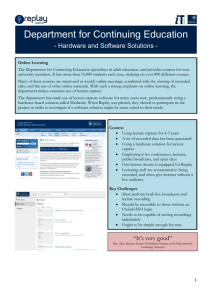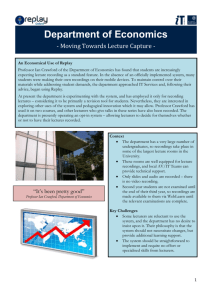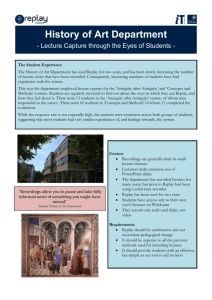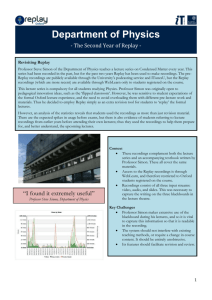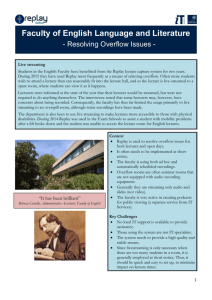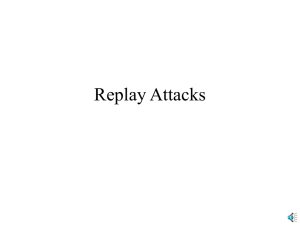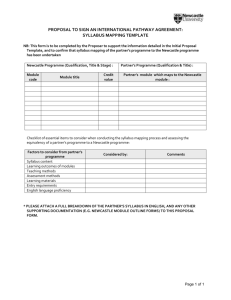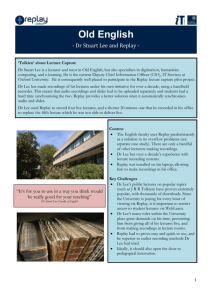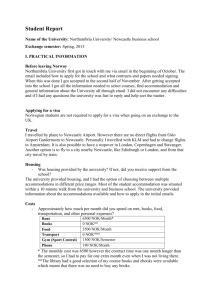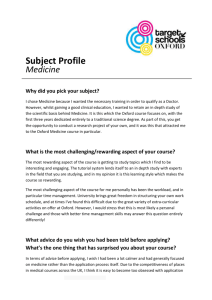Modern and Medieval Languages Snapshot
advertisement
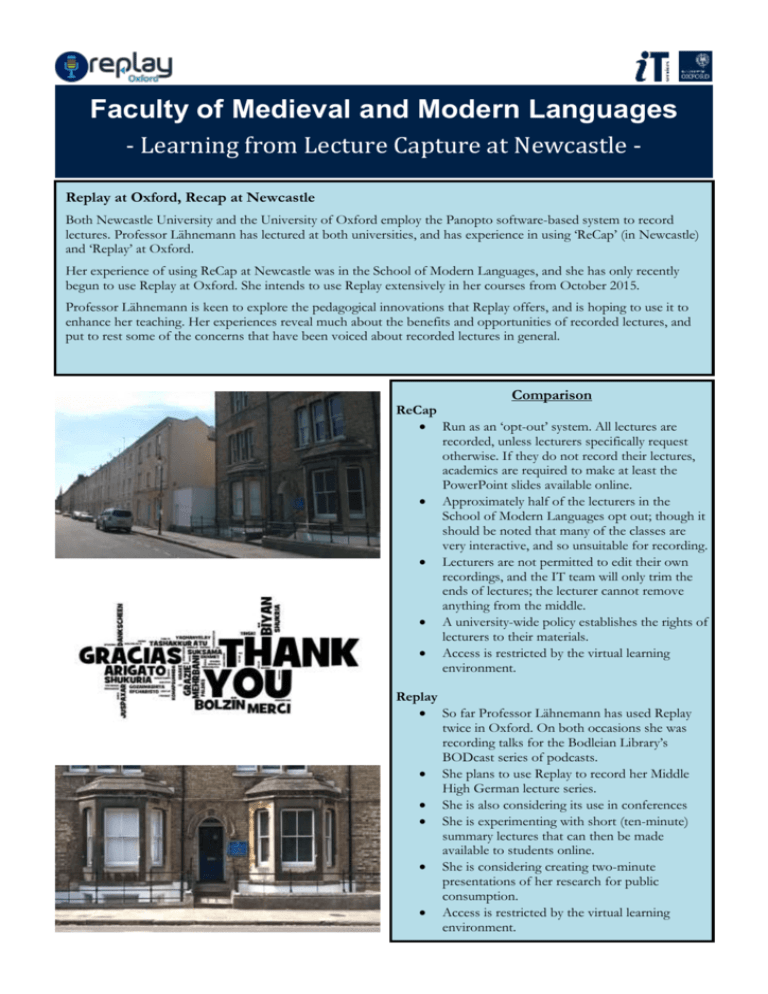
Faculty of Medieval and Modern Languages - Learning from Lecture Capture at Newcastle Replay at Oxford, Recap at Newcastle Both Newcastle University and the University of Oxford employ the Panopto software-based system to record lectures. Professor Lähnemann has lectured at both universities, and has experience in using ‘ReCap’ (in Newcastle) and ‘Replay’ at Oxford. Her experience of using ReCap at Newcastle was in the School of Modern Languages, and she has only recently begun to use Replay at Oxford. She intends to use Replay extensively in her courses from October 2015. Professor Lähnemann is keen to explore the pedagogical innovations that Replay offers, and is hoping to use it to enhance her teaching. Her experiences reveal much about the benefits and opportunities of recorded lectures, and put to rest some of the concerns that have been voiced about recorded lectures in general. Comparison ReCap Run as an ‘opt-out’ system. All lectures are recorded, unless lecturers specifically request otherwise. If they do not record their lectures, academics are required to make at least the PowerPoint slides available online. Approximately half of the lecturers in the School of Modern Languages opt out; though it should be noted that many of the classes are very interactive, and so unsuitable for recording. Lecturers are not permitted to edit their own recordings, and the IT team will only trim the ends of lectures; the lecturer cannot remove anything from the middle. A university-wide policy establishes the rights of lecturers to their materials. Access is restricted by the virtual learning environment. Replay So far Professor Lähnemann has used Replay twice in Oxford. On both occasions she was recording talks for the Bodleian Library’s BODcast series of podcasts. She plans to use Replay to record her Middle High German lecture series. She is also considering its use in conferences She is experimenting with short (ten-minute) summary lectures that can then be made available to students online. She is considering creating two-minute presentations of her research for public consumption. Access is restricted by the virtual learning environment. 1 Replay and ReCap Differences At Newcastle, only IT staff are permitted to edit the recordings. This delays the upload process, and means that only the beginnings and ends of the recordings are trimmed. Periods of group work are not removed and may detract from the recording. At Oxford, lecturers have the opportunity to edit their own recordings. This gives them greater flexibility in editing out parts of the lecture that may be unsuitable for online viewing. Newcastle follows an opt out system, while Oxford prefers an opt in system. Top Tips Professor Lähnemann advises that new users of the system experiment with it briefly in their offices before using it, in order to reduce the number of simple mistakes that may mar the recording process. She believes that online recordings are very well suited to shorter summary talks, and plans to create some to provide students with additional learning resources. She recommends that such recordings be kept as brief as possible, as it is difficulty to concentrate on longer talks when viewing recordings online. Impact At Newcastle, ReCap has proved to be very popular amongst students. Newcastle’s School of Modern Languages believes the system to be so useful that it makes recording of all introductory courses (foundational material) mandatory. Contrary to expectations, lecture capture improved attendance rates at Newcastle. Prior to ReCap, students who missed a lecture tended to skip subsequent ones for fear of having fallen behind their classmates. Recorded lectures allow them to catch up on missed work, thereby enabling them to attend future lectures in step with the curriculum. At Oxford, Professor Lähnemann expects that not all of the students attending her Middle High German lectures will be interested in the entire series; rather, they will be searching for specific information. Recordings will allow them to quickly find the information they seek without having to sit through the entire series. Conclusions Oxford is a late adopter of lecture recording, but this has the advantage of allowing us to learn from others, and to evaluate the benefits and drawbacks of such systems. We are able to examine what universities such as Newcastle have done well and adapt it for our own use. An opt in system is much more suited to Oxford’s devolved structure; lecturers are encouraged to use the service voluntarily, to innovate their practice and support their students. Oxford plans to roll out Replay as a full service in 2016 Want to find out more? Contact the Replay team at: replay@it.ox.ac.uk Check out the latest Replay news at: http://blogs.it.ox.ac.uk/lecture-capture 2
